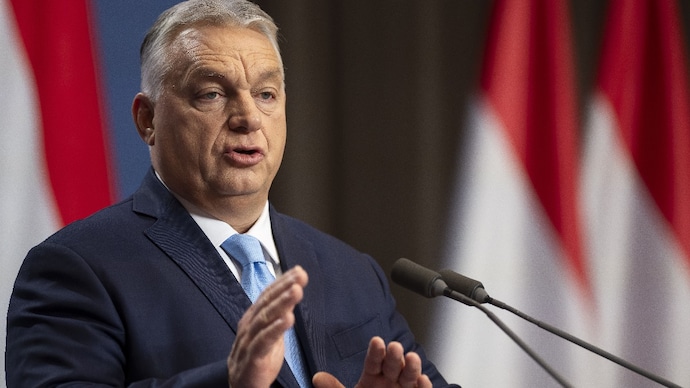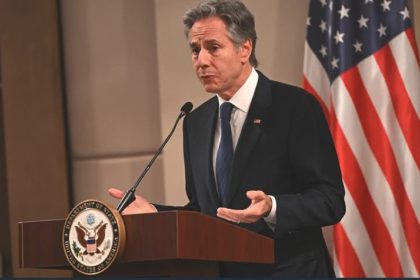By Adeyemi Adekunle
Hungarian Prime Minister Viktor Orbán launched a sharp rebuke against the European Union’s migration policies during his annual press conference in Budapest on Saturday, linking the recent attack in Germany to what he described as the EU’s failure to manage migration effectively.
Referring to the attack, which he labeled a “terrorist act,” Orbán drew a direct line between Western Europe’s migration trends, particularly illegal migration, and an increased risk of violence. “There is no doubt that there is a link between the changed world in Western Europe, the migration that flows there—especially illegal migration—and terrorist acts,” Orbán declared, speaking to a room filled with journalists and political observers.
The Hungarian leader has long been a staunch critic of the EU’s approach to migration, and the events in Germany seemed to serve as a rallying point for his uncompromising stance. “Brussels wants Magdeburg to happen to Hungary, too,” Orbán said, referencing the German city in which the attack occurred, though he did not elaborate on specific details of the incident.
Orbán’s comments underline his broader narrative: that Hungary remains a bastion of stability and security in a Europe he views as increasingly destabilized by unchecked migration. He framed the attack in Germany as evidence of the dangers that migration policies pose to national and regional security, claiming Hungary has successfully avoided similar incidents by taking a hardline approach.
A Legacy of Opposition
This latest critique is not an isolated incident in Orbán’s political career. For years, he has built his domestic and international image around opposing migration, often clashing with the EU over its push for member states to share the responsibility of resettling asylum seekers. His government’s policy of erecting border fences and enforcing strict immigration laws has drawn both condemnation and admiration, depending on the audience.
Orbán’s rhetoric also resonates with many Hungarians who see migration as a threat to their cultural and national identity. A 2023 survey found that a majority of Hungarians supported the government’s restrictive stance on migration, citing concerns over security and societal integration.
“Fighting Back” Against Brussels
Orbán vowed during the press conference to “fight back” against EU migration policies. While he did not specify what form this resistance would take, his government has a history of employing legal challenges, refusing to comply with EU quotas, and mobilizing regional alliances to block collective EU decisions.
“We will not allow what happened in Magdeburg to happen in Hungary,” he said, emphasizing his belief that the EU’s policies represent a direct threat to Hungary’s sovereignty and safety.
Critics argue, however, that Orbán’s remarks exploit fear and oversimplify complex issues. Human rights organizations and political opponents contend that his anti-migration stance often veers into xenophobia, fueling division and alienating Hungary from broader European unity.
A Divided Europe
Orbán’s latest comments come at a time of heightened tension between Hungary and the EU. Migration remains one of the most contentious topics within the bloc, with countries like Hungary and Poland consistently opposing measures aimed at sharing the responsibility of hosting migrants and asylum seekers. Meanwhile, leaders in Western Europe have urged for more collective action to address migration flows and their root causes.
The attack in Germany, which Orbán referenced repeatedly, has reignited debates across the continent about how to balance humanitarian obligations with security concerns. While Orbán and his allies see the incident as vindication of their policies, others caution against using isolated events to generalize about migration’s impact on security.
As Hungary prepares for upcoming EU negotiations on migration policy, Orbán’s remarks signal that his government will remain an unyielding opponent of any plan perceived as compromising Hungarian security or sovereignty. Whether this defiance will influence EU policy or further isolate Hungary within the bloc remains to be seen.
For now, Orbán’s message is clear: Hungary will not bow to Brussels’ vision of a unified approach to migration. “Our borders are sacred,” he concluded. “We will defend them, no matter the cost.”




